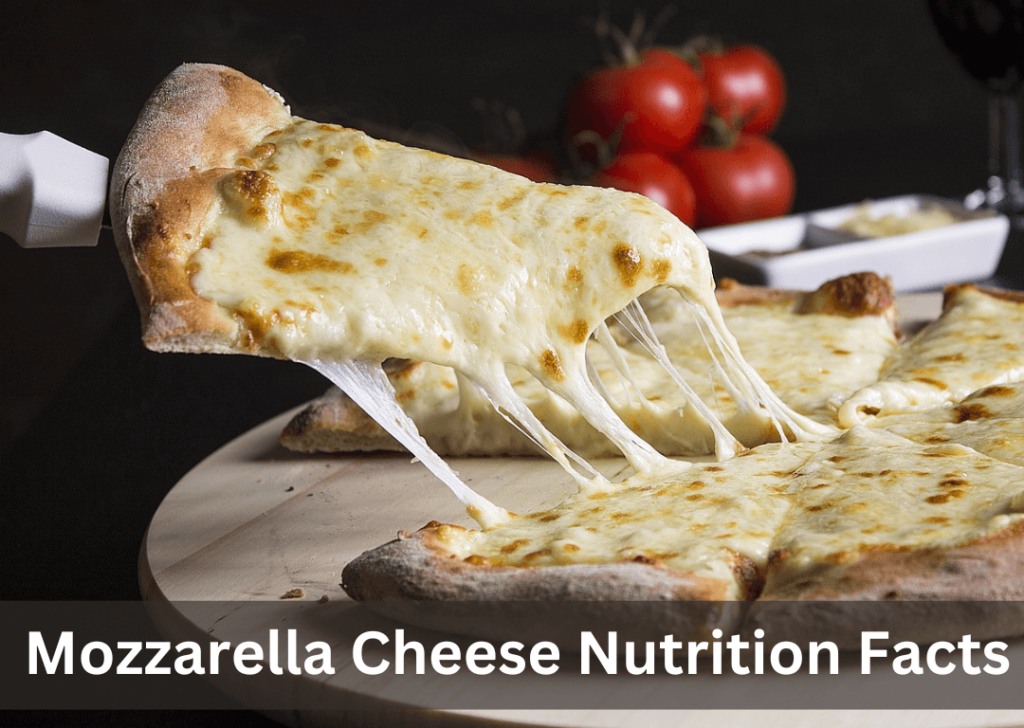Mozzarella cheese, renowned for its stretchy texture and delectable taste, is not just a culinary delight but also a source of essential nutrients. Whether you sprinkle it on your pizza or enjoy it in a Caprese salad, understanding its nutrition facts can help you make informed dietary choices. Let’s delve into the nutritional profile of mozzarella cheese to uncover its health benefits and considerations.

1. Calories and Macronutrients
In a serving size of 1 ounce (28 grams), mozzarella cheese typically contains about 85 calories. It’s a rich source of protein, providing approximately 6 grams per serving, making it an excellent choice for those looking to boost their protein intake. However, it’s important to note that mozzarella cheese is also relatively high in saturated fat, with around 6 grams per serving.
2. Calcium Content
One of the standout features of mozzarella cheese is its calcium content. A single serving can deliver approximately 183 milligrams of calcium, contributing to your daily requirement for this essential mineral. Calcium is crucial for maintaining strong bones and teeth, as well as supporting various bodily functions.
3. Vitamin B12
Mozzarella cheese is a good source of vitamin B12, providing approximately 0.7 micrograms per serving. Vitamin B12 is vital for nerve function, DNA synthesis, and the formation of red blood cells. Including mozzarella cheese in your diet can help you meet your daily B12 needs, especially if you follow a vegetarian or vegan diet.
4. Phosphorus and Sodium
In addition to calcium, mozzarella cheese contains phosphorus, with about 130 milligrams per serving. Phosphorus plays a crucial role in bone health, energy metabolism, and cell repair. However, it’s essential to be mindful of the sodium content in mozzarella cheese, which can vary depending on the brand and type. Opting for low-sodium varieties or moderating your intake can help you maintain a balanced diet.
5. Probiotics
Certain types of mozzarella cheese, particularly those made from raw milk or through traditional methods, may contain probiotic bacteria. These beneficial microorganisms can support gut health and boost digestion. However, not all mozzarella cheese varieties contain probiotics, so it’s essential to check the product labels or choose options labelled as “probiotic-rich.”
Conclusion
In conclusion, mozzarella cheese offers a blend of protein, calcium, vitamin B12, and other essential nutrients. While it can be a nutritious addition to your diet, it’s important to consume it in moderation, especially considering its saturated fat and sodium content. By understanding the nutrition facts of mozzarella cheese, you can enjoy it as part of a balanced eating plan while reaping its health benefits. So, whether you’re melting it on a pizza or savouring it in a sandwich, indulge in mozzarella cheese mindfully for a delicious and nutritious experience.